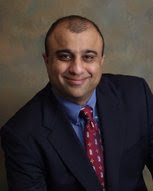Routine EKG testing of young athletes' hearts could save lives, Stanford study says
Using electrocardiograms to test the hearts of young athletes before they participate in sports could be a cost-effective way to reduce sudden deaths, a
Questions about what type of pre-screening to require have drawn heightened interest since two seemingly healthy
One student died. The other was hospitalized and later released with a diagnosis of an electrical abnormality in his heart.
The California Interscholastic Federation, which oversees high school sports, requires all students to have a physical exam, including providing a family health history, before participating. That is the extent of screening for most students.
EKGs can detect signs of hypertrophic cardiomyopathy, a genetic defect that causes thickening of the heart muscle and can lead to dangerous heart rhythms that can stop the organ. Nationally, it is estimated that one in 500 people have this condition, a common cause of sudden deaths in young athletes.
But many experts consider routine EKG screening too expensive, especially since sudden deaths remain rare, involving fewer than 100 young athletes each year in the
The Stanford study, published today in the Annals of Internal Medicine, challenges such opinions and encourages people to re-examine the issues.
Combining routine EKG screening with a family health history and physical exam "would save the most lives at a cost that is generally acceptable for the
EKG screening would cost about $88 per athlete, including follow-up tests, the study estimates. The test takes about 10 minutes, with five minutes more for a physician to examine the results.
For every 1,000 athletes screened, it would save the equivalent of two years of life, the study concludes. The expense for saving one year of life would be $42,900. Anything under $50,000 is generally considered cost-effective in health care, the study notes.
In
Yet many experts continue to have reservations about routine EKG screening.
EKGs do not pick up all heart problems, notes Dr. Junaid Khan, director of cardiac services at
"They could ignore symptoms," said Khan, president of the
Khan added that there would be an emotional toll on students who have false positives. They might become unduly worried and might be denied participation in sports until additional tests rule out heart problems.
The best way to save lives, Khan argues, would be to have more defibrillators at schools and to ensure that adults know how to use the equipment and to do CPR.
Pat Middendorf, athletic director at
"I don't see the state or federal government picking up the cost of it," she said. "Would it be covered by insurance? Now that's a different story."
In an editorial accompanying the study in the Annals of Internal Medicine, Dr. Barry Maron of the Minneapolis Heart Institute Foundation calls mandatory EKG screening impractical at this time. He questioned whether there would be enough doctors to perform the tests, whether students would argue that their liberties had been infringed upon if they are denied the ability to play sports, and whether nonathletes could argue that they should also receive screening.
Wheeler counters that a massive, nationwide program is not necessary and that local school districts could consider requiring EKGs for their students.
Contact Sandy Kleffman at 925-943-8249.

No comments:
Post a Comment